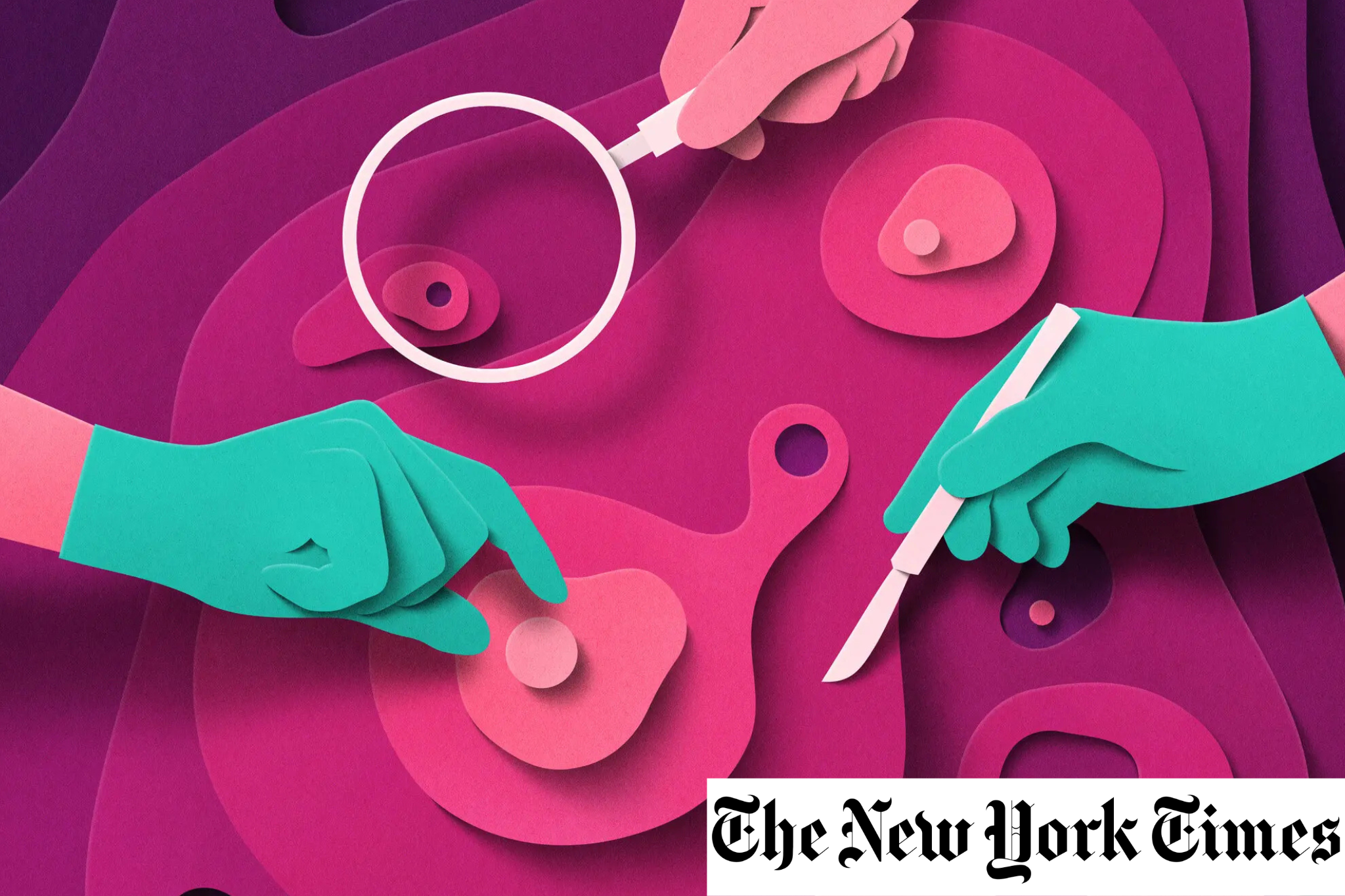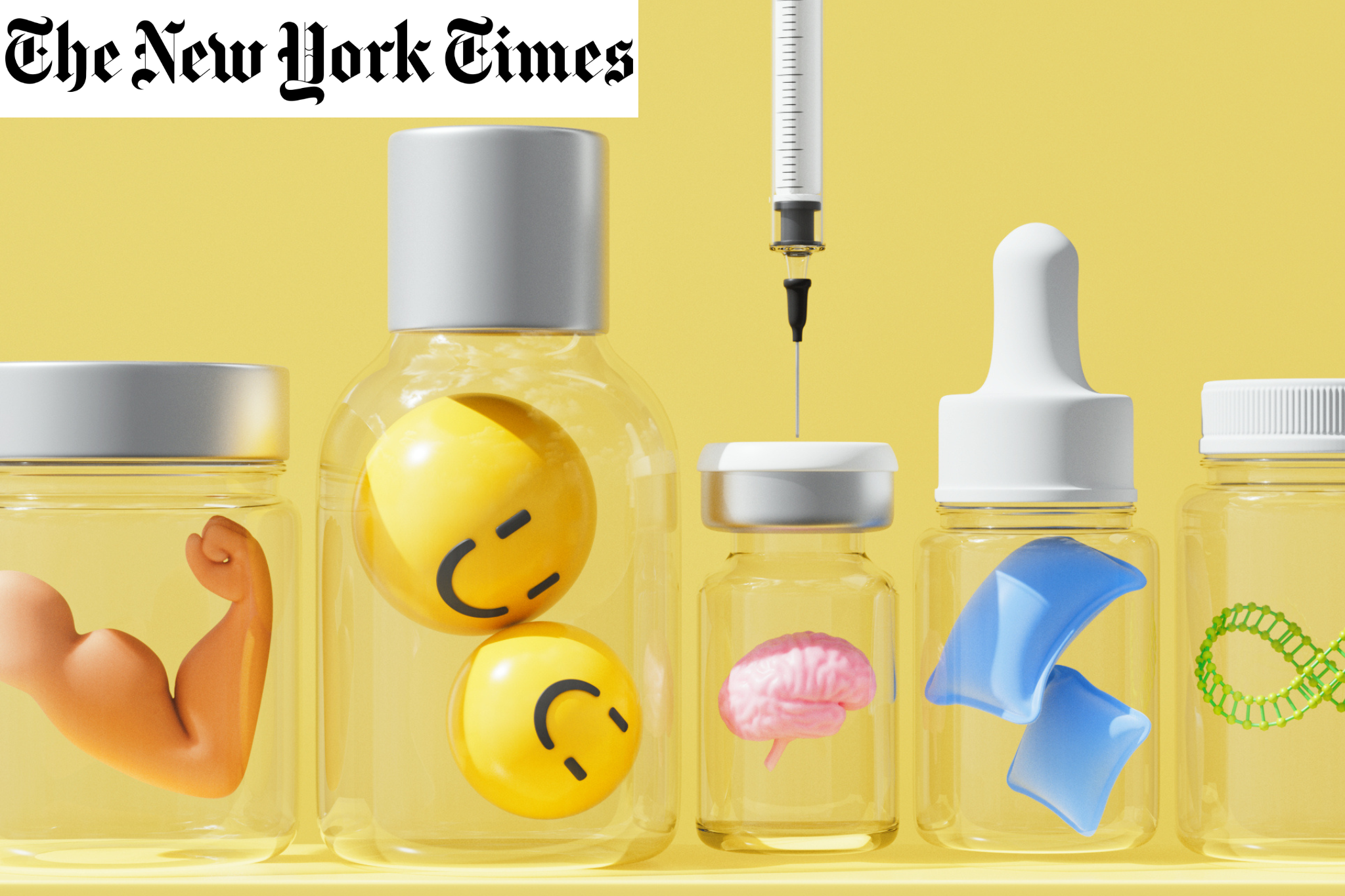All tagged New York Times
An estimated one in eight men will be diagnosed with prostate cancer in their lifetime, often after 65. And as terrifying as that number is, a diagnosis isn’t always quite what it seems. Today, the vast majority of patients will survive the disease — and a growing number of men are living out their lives without ever undergoing treatment.
It seems as if everywhere you turn, celebrities and influencers are talking up peptides. Peptides can give you younger, brighter skin; help you build bigger muscles; let you live longer and heal faster. Wonderful. Just one question: What exactly is a peptide?
One in 10 men over 40 experiences a condition called delayed orgasm, which can make sex difficult.
The treatment has become increasingly popular, especially among older men. Here is what to keep in mind if you are considering it.
Erectile dysfunction is more common than one might think. More than half of men over 40 will experience some kind of erectile problem, and the prevalence increases with age (though men in their 20s and 30s can be affected, too).
Concerned about losing access to pregnancy care, and fearful of legal consequences, surrogates and those who work with them are rewriting contracts and changing the way they operate.
This article involved a deep dive into neurofeedback, a "brain training" therapy that has been around for decades — its advocates say the therapy can improve concentration, mood, sleep, and even athletic ability, but it has yet to gain traction in mainstream mental health circles.
Ketamine — an anesthetic first popular with the 1970s counterculture movement and then as a club drug known as “Special K” — has recently emerged as a promising mental health treatment. Unlike conventional antidepressants, which work by increasing serotonin levels, ketamine appears to impact a neurotransmitter called glutamate, which is thought to play a role in regulating mood. Read the article here.
A new book of photography by Burt Heynen features the intimate moments of queer dads in America. American culture has not been particularly starved of images of gay fatherhood, particularly in recent years. It no longer feels revelatory to see them on television, as it did when “Modern Family” premiered in 2009. Less common are images of gay fathers who aren’t Instagram ready — like two men combing their daughters’ hair. Read the article here.
Deep canvasses require volunteers to be vulnerable with strangers, which can be uncomfortable but effective. A 2016 study published in Science found that 10 percent of voters deep-canvassed on transgender rights shifted their views in a positive direction. “That may not sound like a lot,” said Dave Fleischer, director of the Leadership Lab, a group involved in the research. “But it’s better than zero, which is the result of almost everything else we’ve tried.” Read the article here.
While the United States remains one of the few countries where gestational surrogacy is legal, and widely practiced, it continues to be a source of heated debate. Often missing from the conversation, however, are perspectives of surrogates themselves — and the varied, sometimes deeply personal, reasons that compel them to become surrogates. Read the article here.
On any given day in the United States, over 400,000 children, who have been temporarily or permanently removed from their biological families, are dependent on the country’s foster care system. Yet a perennial challenge facing the child welfare system is recruiting enough foster parents to meet the need — a problem that has worsened during the pandemic.
The pandemic is not just impacting parents and pregnant people — all prospective parents are facing new challenges.
This article is part of “The Price of Modern Parenting” series for the New York Times.
Each adoption process shares the same ultimate purpose: to unite children who need families with those that want children. Yet, despite this common goal, the price tag of adoption in the United States varies widely.
To consider the future is to consider a future without men — well, at least without male-created sperm. In the laboratory, scientists are drawing closer to growing sperm from skin cells. This piece was part of a special New York Times issue on Fertility, published on November 10, 2019.
It’s never been easier for L.G.B.T.Q. people to become parents. We can now adopt and serve as foster parents in every state in the country. Thanks to advancements in assisted reproductive technology, otherwise known as ART, and innovative co-parenting and known-donor arrangements, we’re also having biological children in greater numbers. Despite this progress, a complex network of state laws, regulations and restrictions affect many of our most common paths to parenthood, meaning would-be L.G.B.T.Q. parents can face a far more complicated legal landscape than our straight counterparts. Read the article here.
The process of adopting can be a long, complicated and emotional ride, with far more legal and financial roadblocks than many people assume. But, as most adoptive parents will tell you, it’s also a deeply fulfilling journey. Read the article here.
“Whose got your nose!” someone was carrying on in falsetto. I was mid-eye-roll before realizing, to my mortification, that it was I who was emitting these horrible noises. It was I who had her nose.
Arriving at my scheduled “donation time,” a technician guides me to the “collection room,” points out my various “entertainment options,” and hands me a sterile cup for my “specimen.”
Wow, what a nasty little bird, I thought. Imagine, tricking someone else into raising your own biological offspring. That’s just so wrong, so… Suddenly it hit me: I’m the cuckoo bird.


























